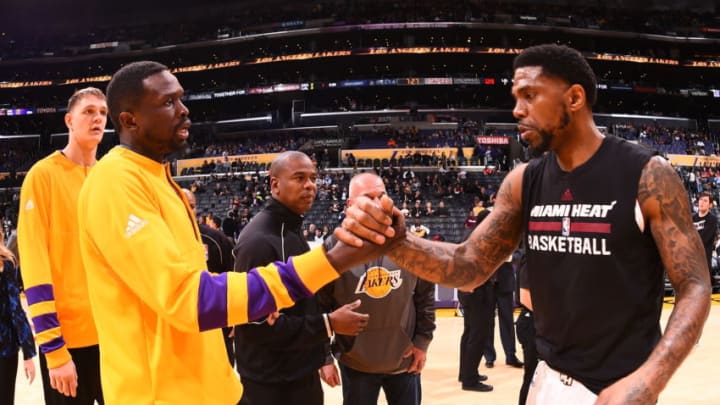Miami Heat: Luol Deng is the victim of an awful contract

Big Bucks, No Buckets
The summer of 2016 was a magical time for NBA players’ wallets. Everybody was getting paid.
The Miami Heat notoriously payed big money to retain both Tyler Johnson and Hassan Whiteside, who have carried mixed opinions about their future’s with the organization.
Shelling out for Johnson and Whiteside made retaining Deng impossible. Though Deng wanted a deal to work, Miami’s choice to reward youth with cash locked him out of his own potential earnings.
Thus, his jaunt to Los Angeles.
"“At the end of the day, I try to play the best that I can play, be the best player I can be and hear what everyone has to say and listen to teams,” Deng said after his time in Miami. “But for me, it’s always about being comfortable, being in an organization and around people that really appreciate the things that I do. I think the financial part is what you discuss when you go into that room.”"
Deng wanted his last big payday. A two-time NBA All-Star and All-Defensive team honoree (2012), he knew his worth, and like any employee he wanted adequate compensation.
Skipping to Los Angeles for $18 million per season for four years made sense. It was a deal that came with the financial security Deng wanted.
But when combined with Walton’s decision not to play him, Deng’s deal made him one of the most immovable players in the league at no fault of his own.
Had a team like the Sacramento Kings or Phoenix Suns made a move for Deng, he could have had the best of both worlds. Both squads, though clearly in a youth movement (like much of the league), made a push to bring in veteran talent from which their youth could learn from on the court.
Zach Randolph just played 25 minutes per game, while leading the Kings in scoring in 2017-18. Vince Carter also received meaningful minutes at 41-years-old, while Tyson Chandler has started the majority of the games he’s played in Phoenix.